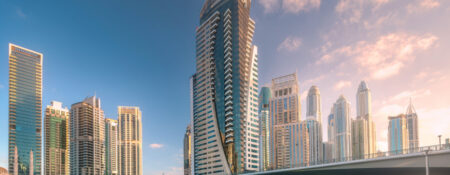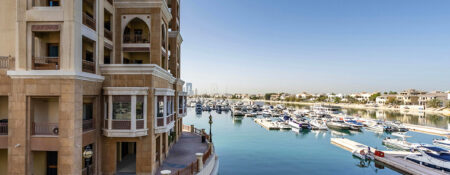
In recent decades, cities like Dubai, Abu Dhabi, Riyadh, and other rapidly growing metropolises in the Middle East have emerged as global hubs of opportunity, attracting millions of people seeking to build their fortunes and expand their professional networks. These vibrant, fast-paced urban centers promise economic prosperity, luxurious lifestyles, and unparalleled connectivity. However, beneath the glittering skyscrapers and bustling economies lies a more complex reality: the intense pace and high expectations of these environments can sometimes strain personal relationships, challenge mental well-being, and affect overall quality of life. This article explores how the pursuit of success in these cities can lead to excess of short-term connections, growing feeling of loneliness, concentration in materialistic culture and overuse of Social Networks while emphasizing the importance of slowing down to nurture meaningful relationships for psychological well-being.
Fast-growing cities like Dubai and Riyadh draw ambitious individuals from around the world with the promise of career advancement, entrepreneurial opportunities, and a cosmopolitan lifestyle. According to a 2023 report by the Dubai Statistics Center, over 90% of Dubai’s population consists of expatriates, many of whom relocate to the city for work or business ventures. Similarly, Saudi Arabia’s Vision 2030 has spurred rapid urbanization in Riyadh, with the city’s population projected to reach 8.5 million by 2030. These cities offer a dynamic environment where innovation, commerce, and networking thrive, making them magnets for those chasing financial success.
For many, moving to these urban hubs is a calculated decision to build wealth and forge connections that can open doors to new opportunities. The fast-paced nature of these cities fosters an environment where professional networking is paramount, and relationships are often built on mutual benefit. However, this focus on profit-driven connections can come at a significant personal cost.
In the race to succeed, relationships in fast-paced cities often become transactional. Networking events, business dinners, and social gatherings are frequently centered around advancing careers or securing deals, leaving little room for genuine emotional bonds. While these connections may yield short-term professional gains, they often lack depth and authenticity. A 2022 study published in the Journal of Social and Personal Relationships found that individuals in highly competitive urban environments reported lower levels of trust and emotional intimacy in their social networks compared to those in smaller, less frenetic settings.
As individuals prioritize career-driven relationships, they may inadvertently neglect the people who matter most—childhood friends, family members, and long-time confidants. The demanding schedules of city life, coupled with long working hours and constant connectivity through digital devices, leave little time for meaningful communication. A phone call to a parent or a catch-up with an old friend often takes a backseat to meetings, deadlines, or networking opportunities. Over time, this neglect can erode once-strong bonds, leaving individuals feeling disconnected from their roots.
The erosion of meaningful relationships in fast-paced cities can lead to profound loneliness, even amidst crowded urban landscapes. A 2021 survey by YouGov found that 54% of expatriates in the UAE reported feelings of isolation, despite living in one of the world’s most vibrant cities. Similarly, in Saudi Arabia, a 2023 mental health study highlighted that young professionals in Riyadh were increasingly experiencing loneliness due to a lack of deep, supportive relationships.
Loneliness is not just an emotional state; it has tangible consequences for mental and physical health. Research from the American Psychological Association indicates that chronic loneliness is associated with higher risks of depression, anxiety, and even cardiovascular disease. In the context of fast-paced cities, the pressure to maintain a polished, successful image can exacerbate these feelings, as individuals may hesitate to admit their struggles or seek help.
In the absence of meaningful connections, many individuals in fast-paced cities turn to materialism and entertainment as a way to fill the emotional void. Dubai’s sprawling malls, Abu Dhabi’s luxury boutiques, and Riyadh’s growing entertainment complexes offer endless opportunities for retail therapy and instant gratification. A 2024 consumer behavior study in the UAE revealed that 62% of young professionals engaged in “impulse buying” to cope with stress or feelings of emptiness.
Overspending on luxury goods, dining, or extravagant experiences can provide temporary relief, but it often deepens the cycle of dissatisfaction. The pursuit of materialistic values can lead to financial strain, further compounding stress and alienation. Moreover, the culture of conspicuous consumption in these cities can create a feedback loop where individuals feel pressured to keep up with their peers, prioritizing external validation over inner fulfillment.
To break this cycle, it is essential to prioritize meaningful relationships and self-reflection. Slowing down in a fast-paced city may seem counterintuitive, but taking time to reconnect with loved ones or engage in authentic conversations can have profound benefits for psychological well-being. A 2020 study in Nature Communications found that regular, meaningful social interactions—whether with family, friends, or even casual acquaintances—significantly improve life satisfaction and reduce symptoms of loneliness.
Simple actions, such as scheduling a weekly call with a childhood friend, visiting family, or setting aside time for uninterrupted conversations, can help individuals maintain a sense of connection and belonging. Additionally, there are apps designed to help those living in big cities reconnect with loved ones, making it easier to stay in touch despite busy schedules. Engaging in community activities, such as volunteering or joining local clubs, can also foster a sense of purpose and counteract the transactional nature of urban relationships.
To cultivate a healthier, more balanced life in fast-paced cities, consider the following strategies:
Living in fast-paced cities like Dubai, Abu Dhabi, and Riyadh offers unparalleled opportunities for professional growth and financial success. However, the relentless pursuit of these goals can come at the expense of personal relationships, leading to loneliness and a reliance on materialistic coping mechanisms. By slowing down, prioritizing meaningful connections, and leveraging tools like apps to stay in touch with loved ones, individuals can counteract the isolating effects of urban life and improve their overall quality of life. In the end, true wealth lies not in the fortunes built or the connections made for profit, but in the relationships that provide emotional support and a sense of belonging.



